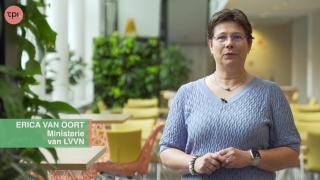Organoids for studying (personalised) antiviral treatments
Giulia is a scientist in clinical virology with a PhD from OrganoVIR Labs at Amsterdam UMC. Her research aims to improve antiviral testing using human organoids—tiny, lab-grown tissues that mimic real human organs. The COVID-19 pandemic highlighted the urgent need for effective antiviral treatments, as traditional pre-clinical testing on animal models has only a 5% success rate in clinical trials. By utilising human organoids, Giulia enhances the accuracy of antiviral research. She specializes in infecting organoids from the airway, gut, and brain with various patient-derived viruses, allowing for more realistic modelling of viral infections. Her work also sets the stage for personalised medicine in the context of viral infections. By isolating viruses and stem cells from patients suffering from severe infections, she can test tailored treatments that are more likely to succeed. With this, she aims to revolutionise antiviral testing and improve treatment outcomes for patients.
Click on the info button for the full version of the video.
New

Helpathon #12 – Can you help Erica?

The NAM Navigator: A unique repository for information on the validation and acceptance of New Approach Methodologies
